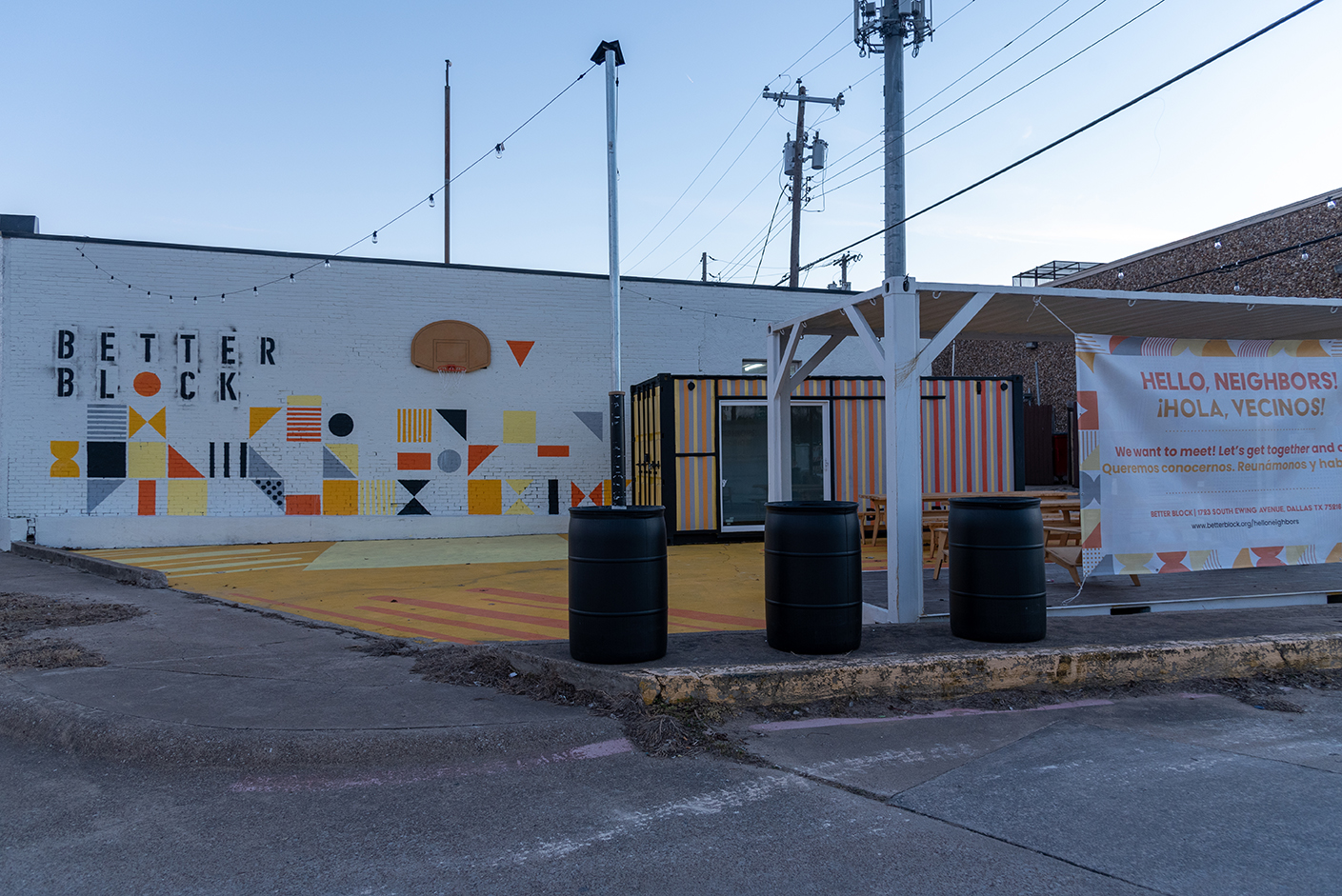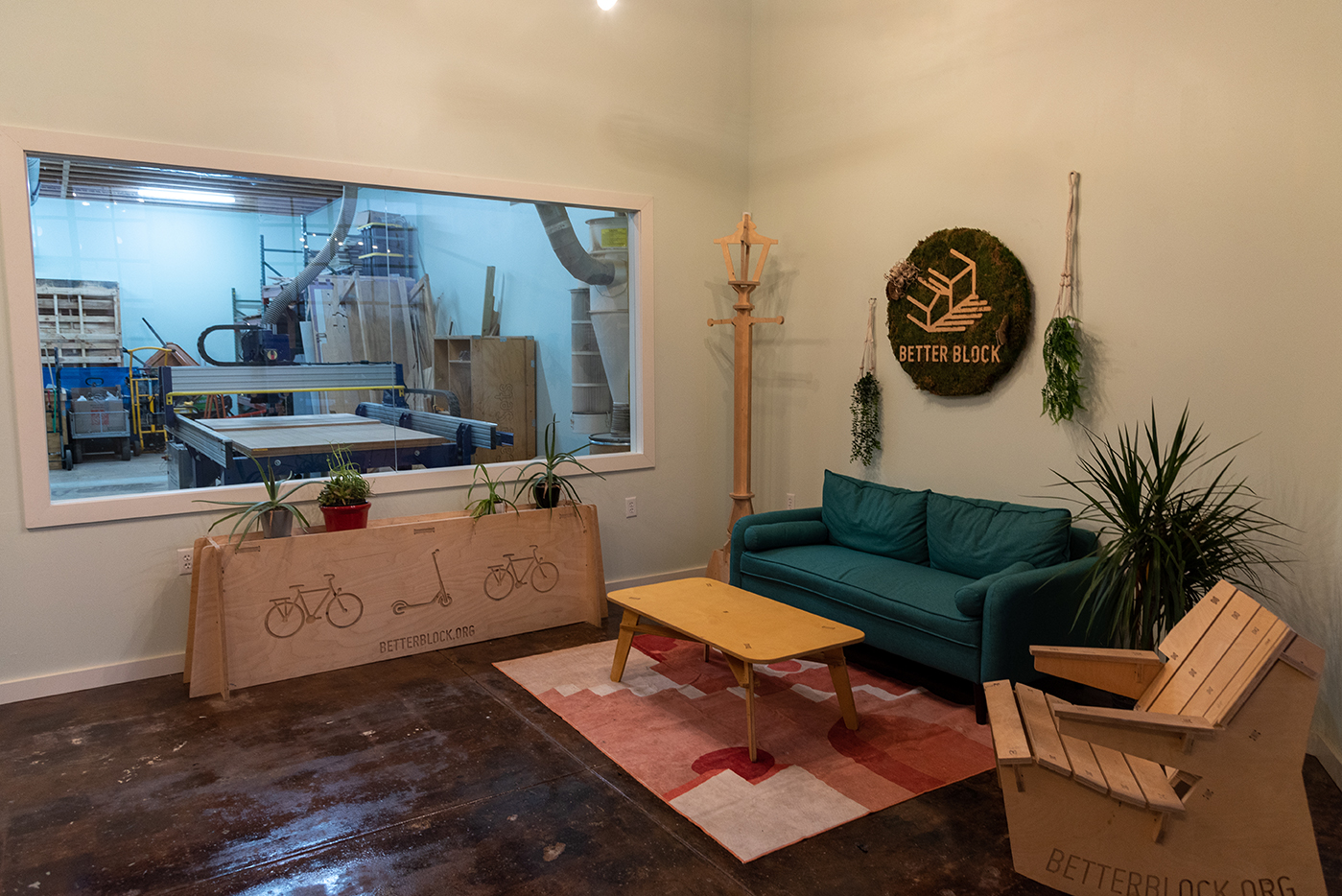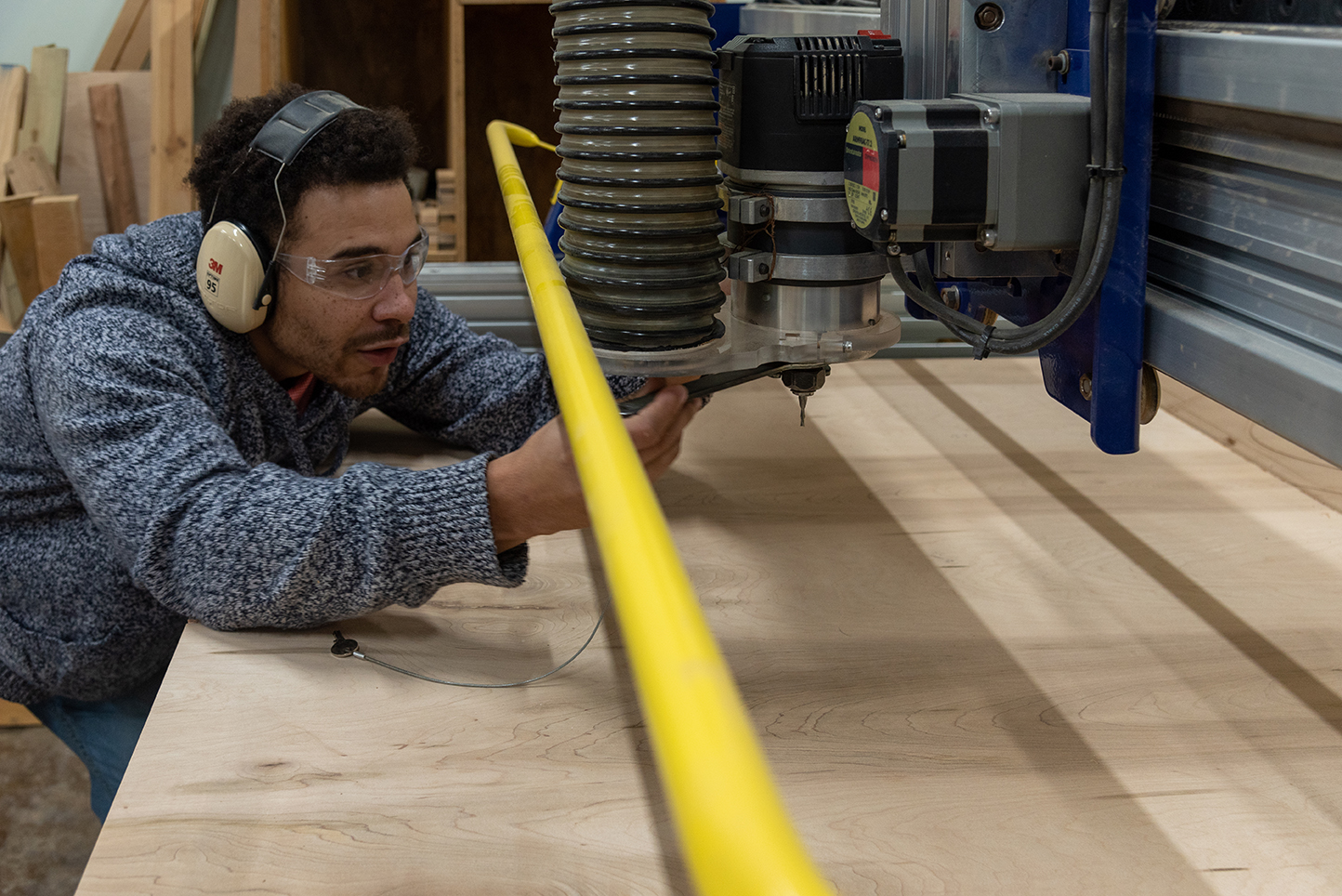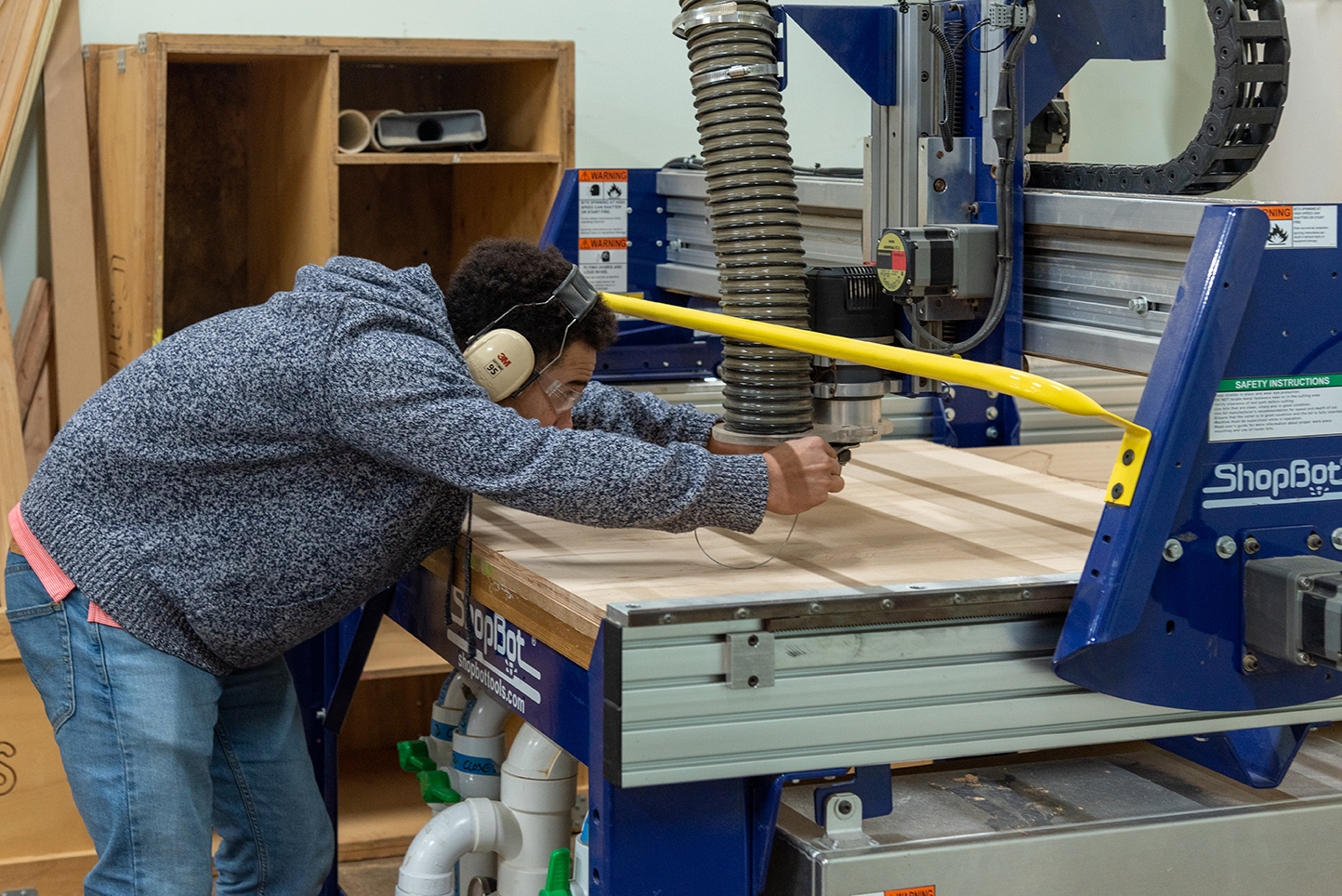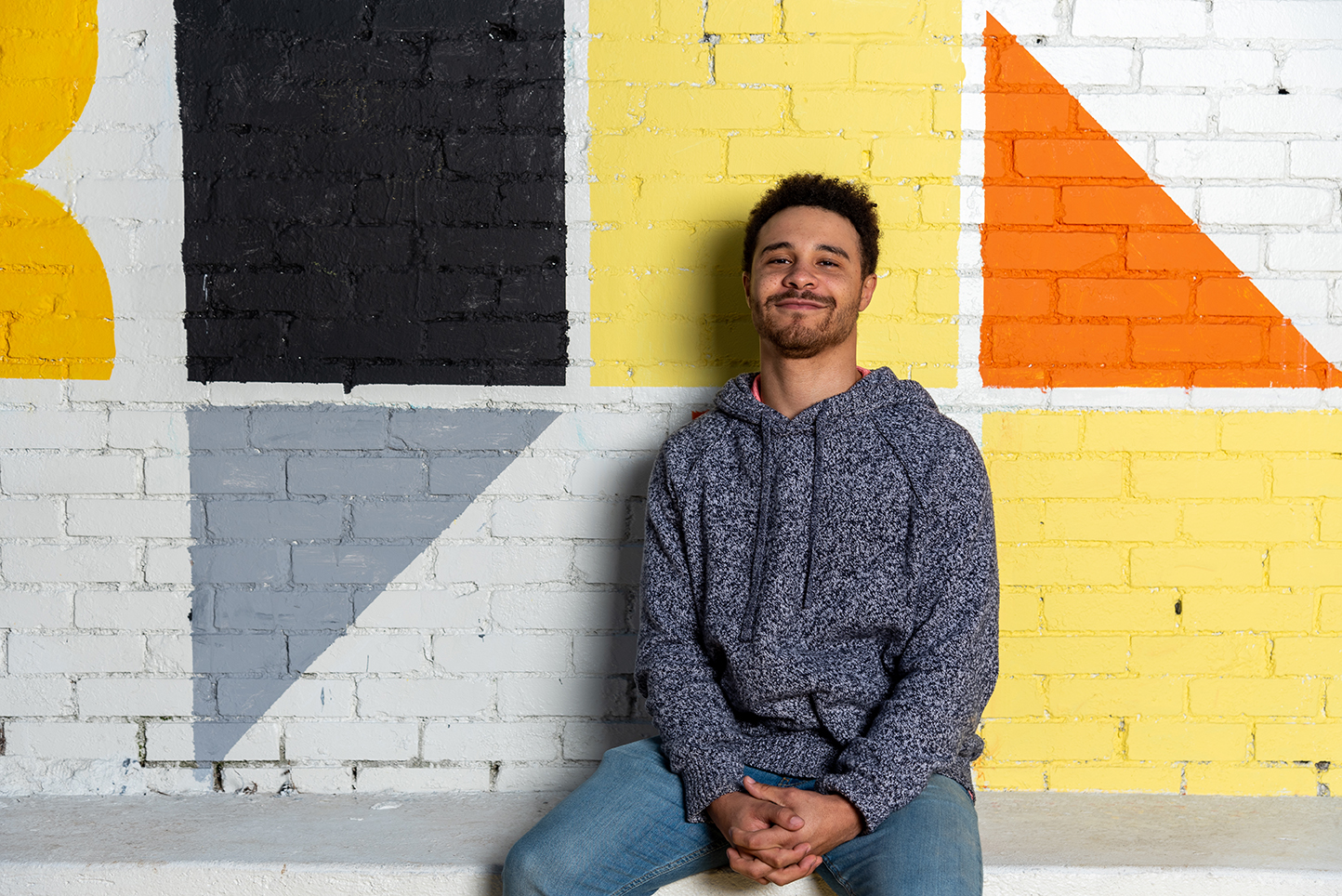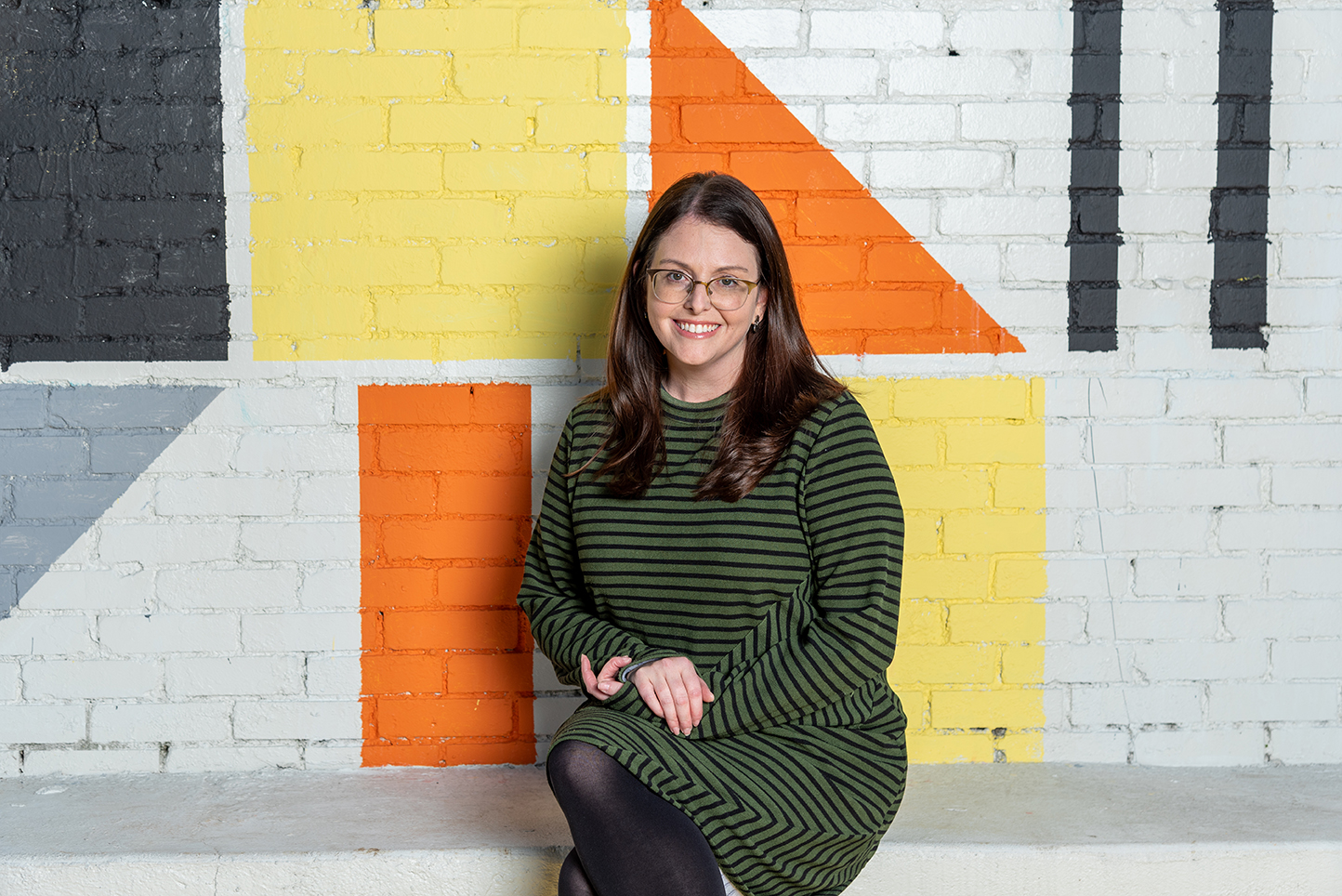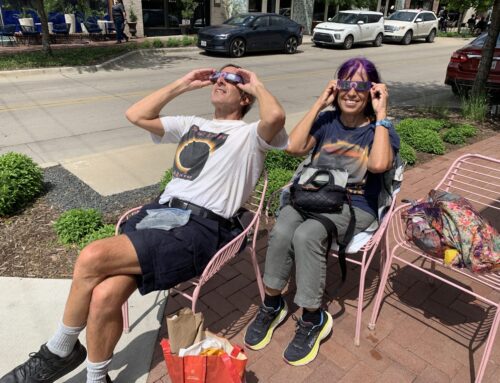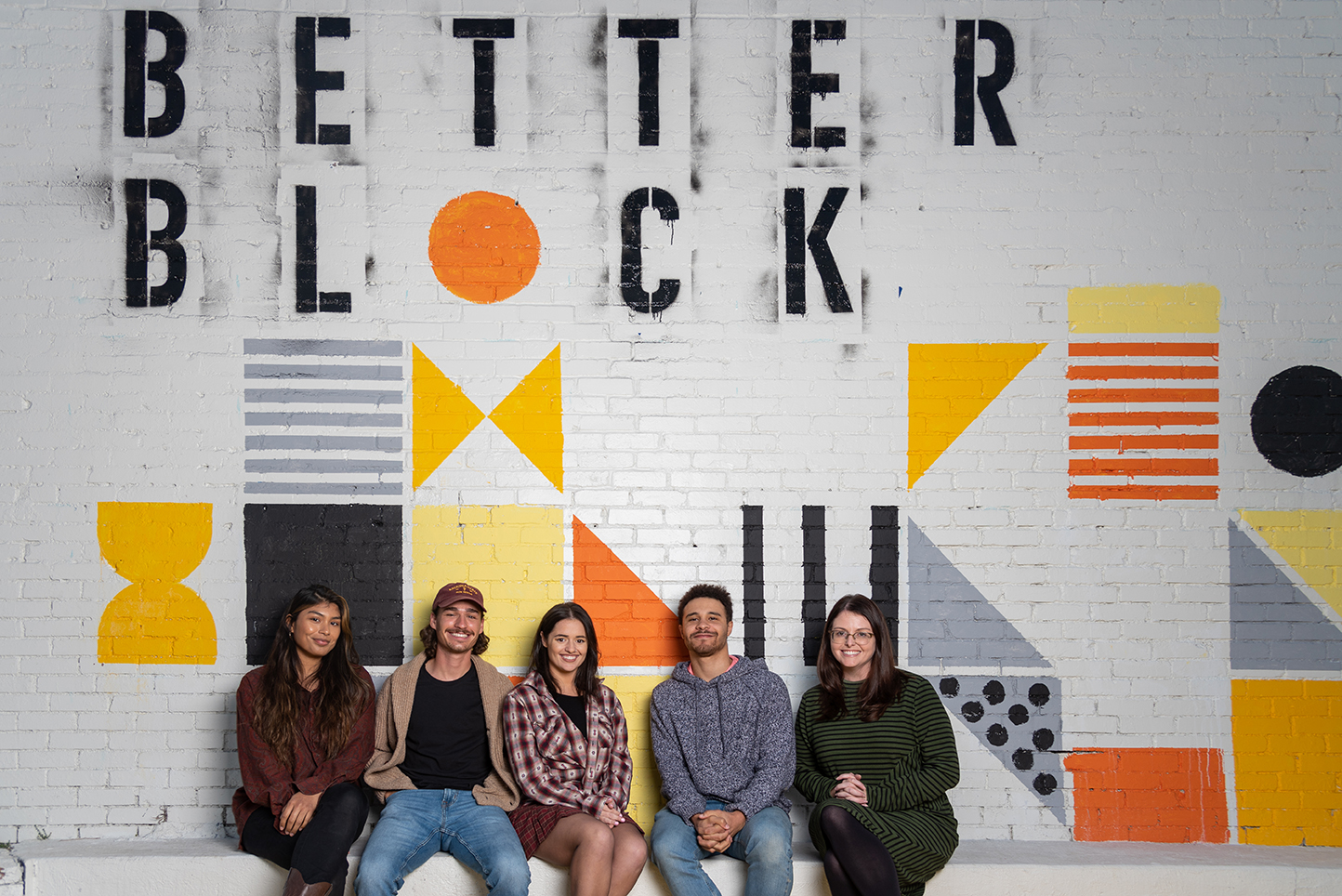
The staff of Better Block sits below a mural in their new Oak Cliff office. Photography by Julia Cartwright.
The employees of Better Block had not yet moved into their new office on S. Ewing Avenue when they noticed something.
Around 3:30 p.m. every day, students from neighboring schools would congregate in the parking lot of the Family Dollar next door. The parking lot had become a social scene for the students who didn’t have anywhere else to hang out.
It was exactly the sort of problem Better Block was founded to tackle.
Better Block is an urban design nonprofit that is dedicated to helping communities rethink their neighborhood spaces.
They build pop-up parks, turn abandoned parking lots into plazas, install greenery and shade and get rid of conflict points at intersections, just to name a few past projects.
Krista Nightengale, Better Block’s executive director, says the nonprofit chews through dozens of questions when deciding how to best serve a community.
They start by asking things like “Are streets safe for kids walking home from school?” and “How do we slow down a street so passing motorists see the businesses here?” and “Is there a community here that wants to make a change or is nervous about too much change happening?”
Then, in a 120-day process, Better Block helps enact changes that can be made to the surrounding area.
“We try to get people to not overthink, and try to get over that analysis paralysis situation,” Nightengale says. “On days 119 and 120, we have a demonstration where it looks like it’s just this big fun event. But really, we’re trying to get people there to experience the changes to the streets and to the plazas.”
While Better Block only officially hosts their demonstrations for two days, Nightengale says communities have the opportunity to activate a space and carry it forward for as long as it benefits them. While Better Block is based in Oak Cliff and has worked on projects throughout Dallas, their projects span across the United States and even abroad. Nightengale says each community’s needs are nuanced and specific.
Still, the underlying driver for almost all Better Block projects is a desire to give neighbors a place to build relationships.
“I don’t feel like anything we do is all that innovative or … terribly creative. It’s really just creating spaces (where) people want to bump into one another,” Nightengale says.
Better Block projects are hard to miss. They are painted with bright colors and geometric patterns, and accessorized with plywood furniture called “Wikiblocks.”
Draven Pointer is an architectural designer for Better Block and manages the Wikiblock library. It’s an open-source library of cut files that can be accessed on Better Block’s website and built by anyone with a CNC cutter — a machine typically found in makerspaces and workshops — and plywood.
“You take those files, send them through the machine, and it cuts these specific pieces out of wood. And then those pieces come together to create a table, furniture or a bench,” Pointer says.
Pointer says all of the Wikiblock furniture fits together like a puzzle, and assembly does not require glue, screws or nails. The goal of the Wikiblock design is to lower the barrier to entry on creating furniture that can be used to enhance or create a community space.
The new Better Block office has a CNC cutter in the back room, and Nightengale says the office hopes to start hosting workshops for community members and camps for younger kids.
Before opening their new office at the end of 2022, the Better Block employees converted their office parking lot into a yellow and orange plaza that has shade structures, Wikiblock furniture and an air-conditioned shipping container.
At first, Nightengale says community members warned her that the chairs would be stolen if left outside, and that the air-conditioned shipping container would be taken advantage of. “Humans are good at coming up with ‘what ifs,’” Nightengale adds.
But at 3:30 p.m. every day, students come to the Better Block plaza to relax, socialize and play.
“We build for love, not for fear,” Nightengale says. “(The furniture has) been out there for a month now … We want people to come and use them and set up however they want. But they’re still there.”

